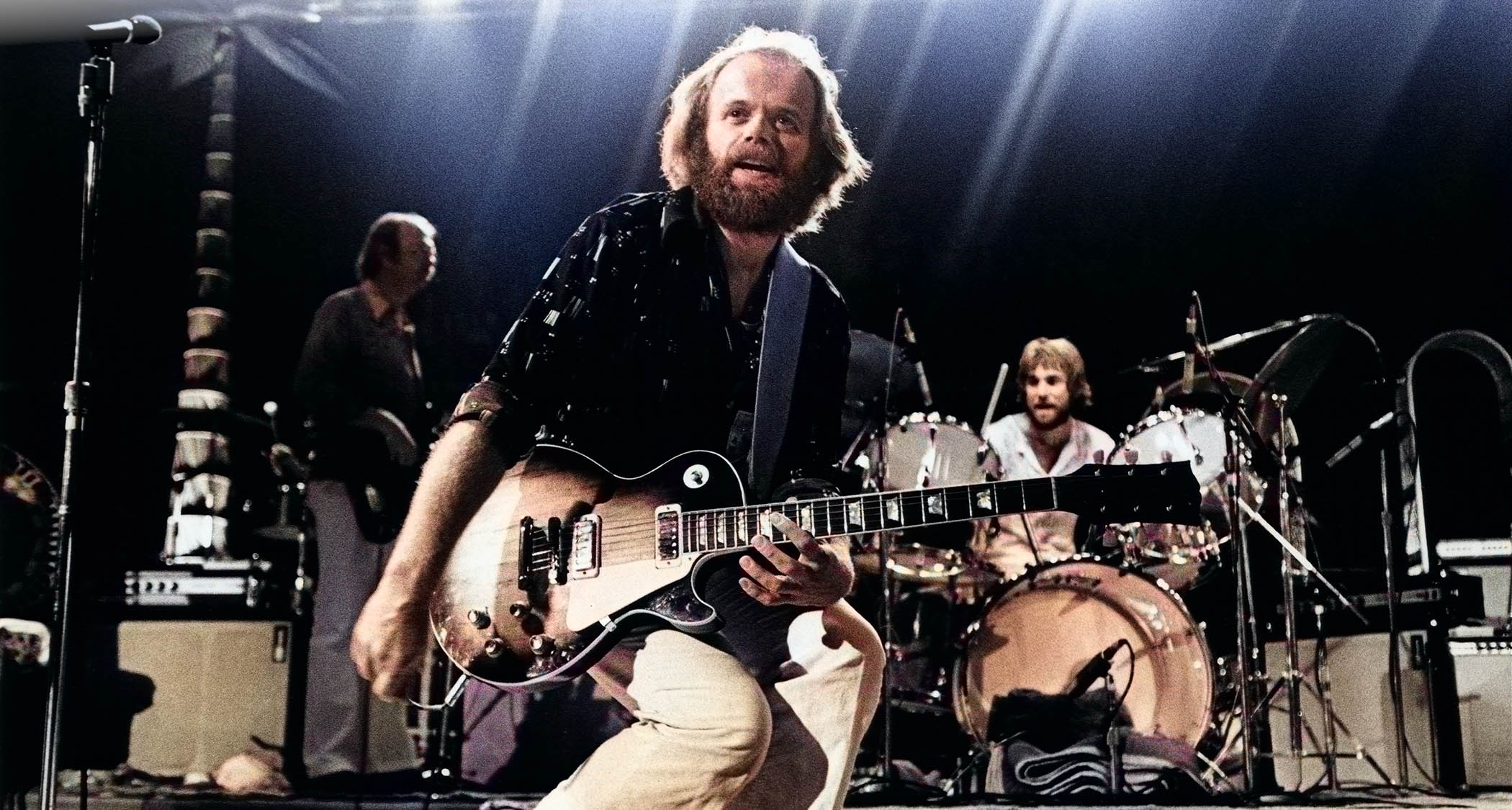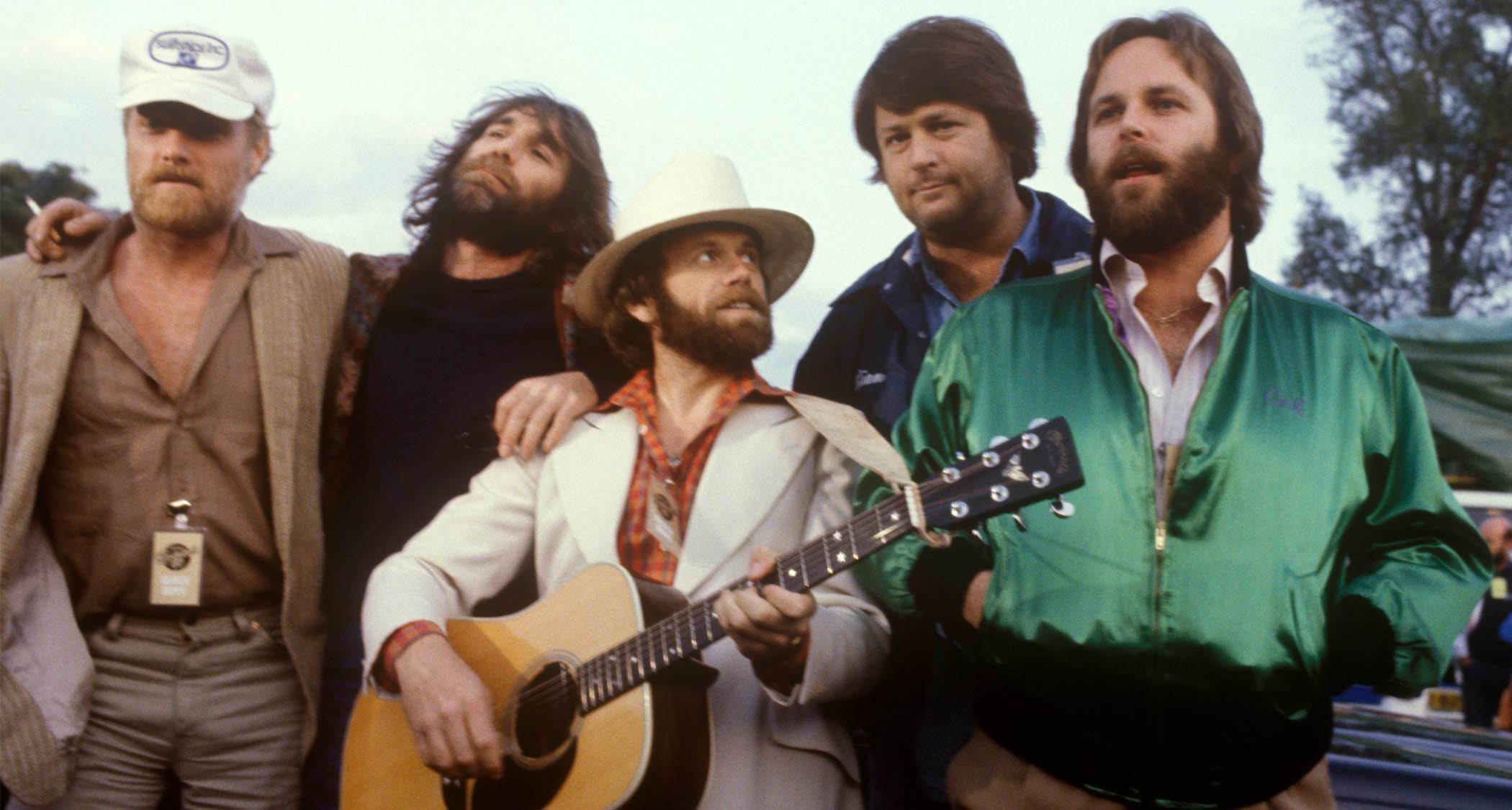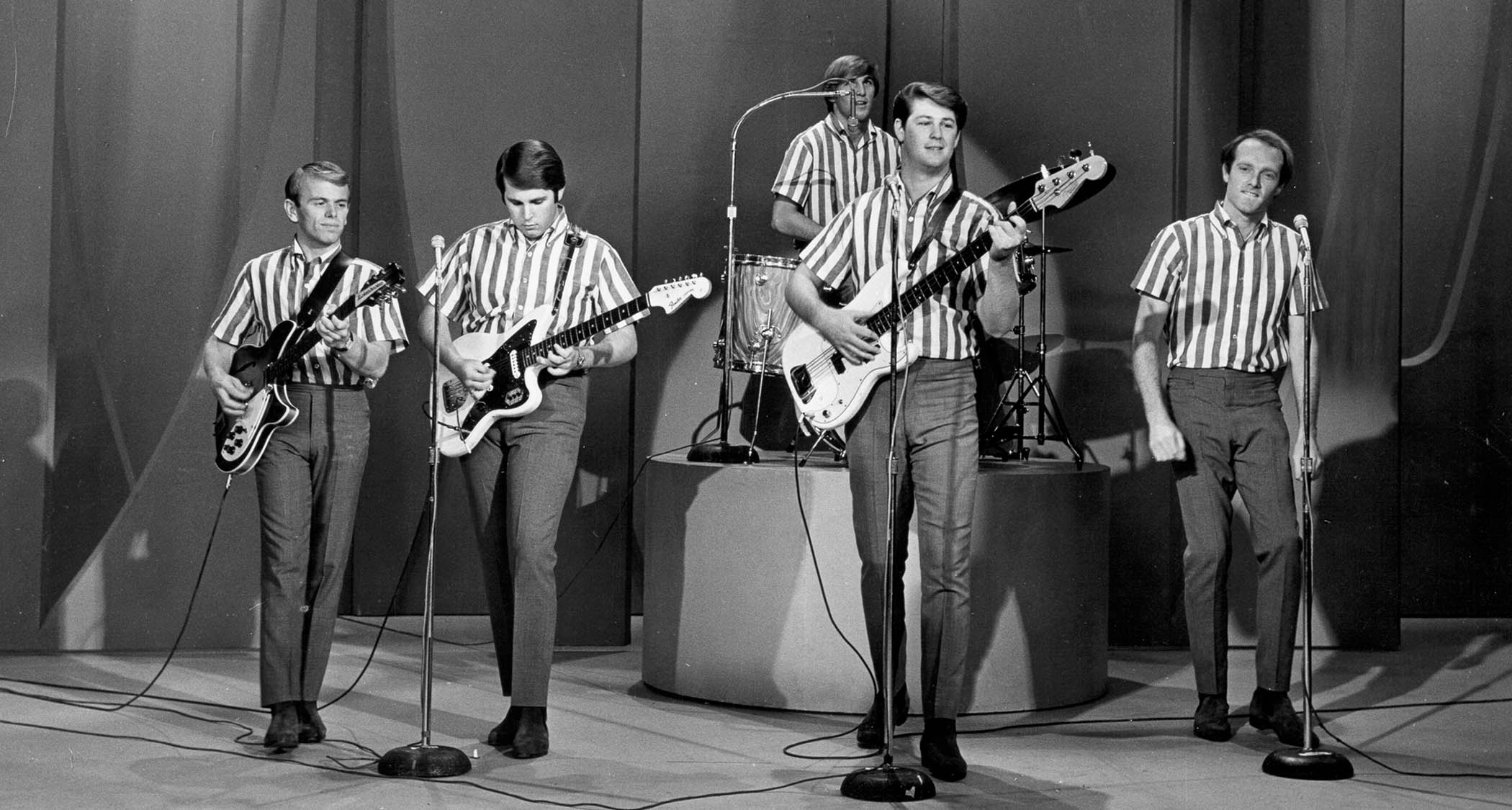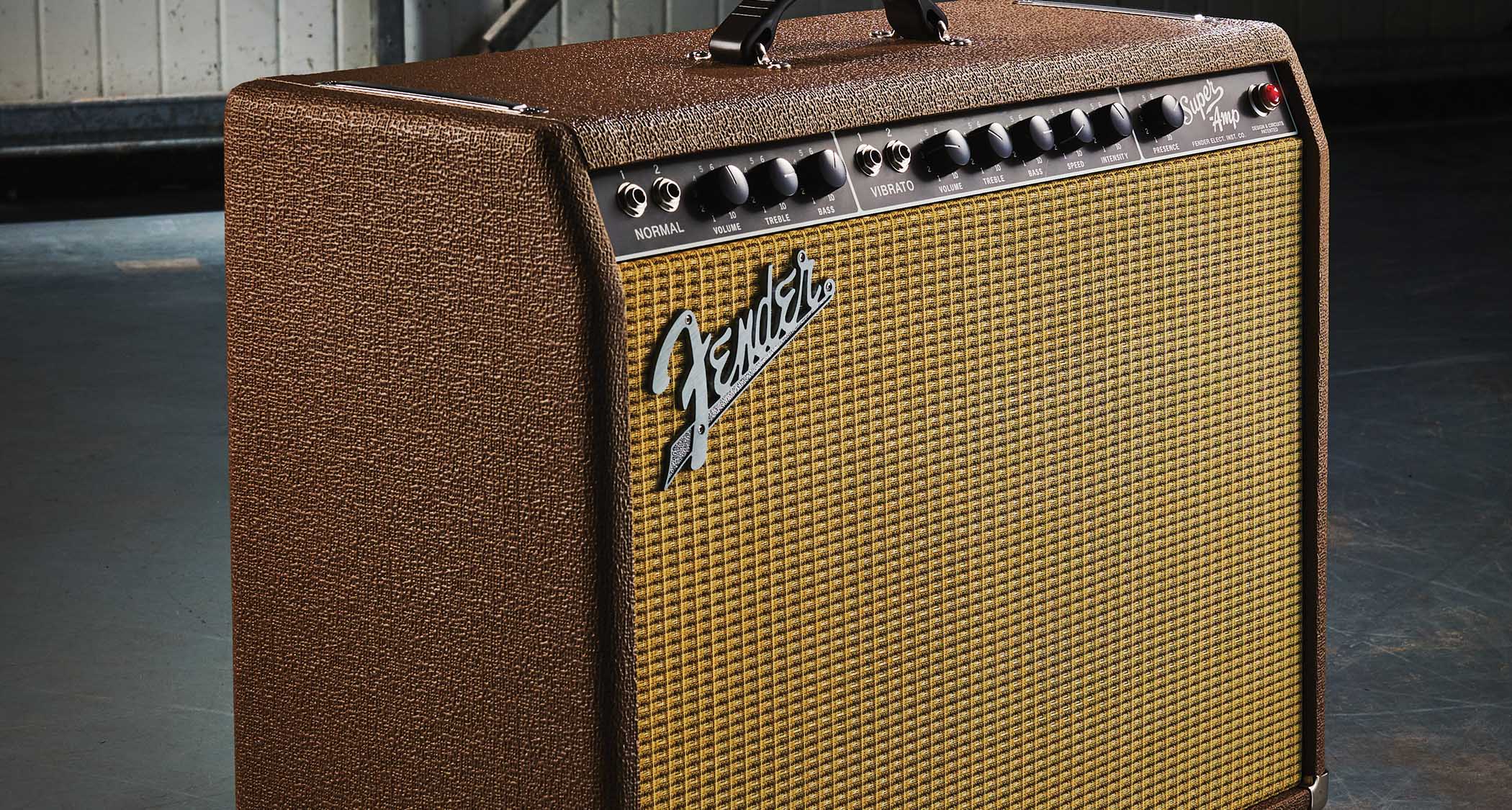“These guys are pros. Brian handpicked these people to represent his music”: Al Jardine on good times with Brian Wilson (and his band), the legacy of his genius, and how the Beach Boys transformed ‘60s surf and guitar culture
As Jardine reflects on the pop-cultural miracle of the Beach Boys and their rising tide of musicality as Brian Wilson's genius crested, he talks about the guitars behind it, and says it was fun, fun, fun

All the latest guitar news, interviews, lessons, reviews, deals and more, direct to your inbox!
You are now subscribed
Your newsletter sign-up was successful
On June 11, 2025, we lost Brian Wilson. He was 82, so the news wasn’t a complete shock. Nevertheless, losing one of the most iconic musical minds of the 20th century was still a big gut punch.
After all, this was the man who gifted us Pet Sounds, not to mention sunshine surf hits like California Girls, I Get Around, and Good Vibrations, to name just a few. The word ‘few’ is certainly operative here, as Wilson’s catalog is as cavernous as his impact. Of course, Wilson’s old six-string-slinging cohort, Al Jardine, knows this.
“These people, these kinds of musicians and composers, have visions coming from them,” Jardine says of Wilson’s boundless talent. “It’s probably like a cosmic consciousness that is streaming right directly through him to us. And we were his messengers. What else can I say?”
And yet, Jardine isn’t done talking… or singing in the beautiful, harmonized fashion that he, alongside Brian, Carl, and Dennis Wilson, and Mike Love, made famous. Jardine himself is 83, but that’s not stopping him from releasing very Beach Boys-esque music in the form of a new four-song EP, Islands In The Sun.
“I just had a lot of fun doing it,” Jardine says of the group of songs that he found on an old cassette tape. “I don’t know… it’s like restoring an old piece of furniture. I really don’t know what the right analogy is, to be honest [laughs]. Maybe it’s more like restoring an old guitar, right?”
Jardine makes a fair point. But when it comes to guitar, Al Jardine, and The Beach Boys, things get murky. Sure, he was, more or less, the band’s ‘rhythm guitarist’ alongside ‘lead guitarist’ Carl Wilson. But early on, David Marks was in the mix, a player who, Jardine says, “knows more than anyone when it comes to guitars and gear from those [early] days.”
Then there’s the matter of The Wrecking Crew, who Brian Wilson deployed on later Beach Boys albums in place of Wilson and Jardine. And once the 70s came along, Jardine was playing a bit of bass, a smidge of acoustic, and probably – though “not a whole lot” of – electric guitar.
All the latest guitar news, interviews, lessons, reviews, deals and more, direct to your inbox!
Because of Pet Sounds, it went beyond California and we became universal. We weren’t just in California any more; we were universally accepted
All this is to say that, while Jardine certainly was the band’s rhythm player when The Beach Boys played live, it’s hard to suss out just how much guitar he played on the band’s studio albums, not that Jardine seems to care: “I don’t know,” he shrugs.
“I just enjoyed playing and singing. I’m basically a folk singer. But The Beach Boys were more than that. They were more conceptualized and advanced. We sang about cultural things having to do with California, and then, thanks to Brian, we grew beyond that.”
To that end, when he speaks of Brian Wilson’s enduring impact on us all, Jardine smiles, saying, “Thanks to Brian, and the world of Pet Sounds, we got those harmonies and that type of subject matter. Because of that, it went beyond California and we became universal. We weren’t just in California anymore; we were universally accepted.”
You’ve got a new EP out called Islands In The Sun. What’s the story there?
“I was messing around with a bunch of old cassettes and I spotted some versions of this stuff on them. I thought, ‘We ought to finish this,’ and then I started finding other songs in the same way. Those old cassettes sound really great, even better than CDs, which inspired me to finish Islands In The Sun. After that, I more or less discovered the other tunes and consolidated them into a four-song set.”
You’re also touring with Brian Wilson’s old band.
“Oh, sure! Man, getting ready for this has been pretty incredible. I mean, it’s been a massive amount of rehearsing because we’re doing music that we’ve never performed before. And when I say ‘we’, I mean the Pet Sounds Band, aka the Brian Wilson band.
“But we’ve put ourselves out there and it sounds pretty damn good, to be honest with you. These guys are pros. Brian handpicked these people to represent his music, so it’s been a big challenge, but I think we have it down now.”
Brian passed in June, which must have been hard for you. When you think of him, where does your mind wander to?
“His talent transcends… if there’s even a word to describe it. He shared his amazing vision with us. In my opinion, he literally invented a form of singing, writing, and composing that, to this day, is, I don’t know… like Amadeus [Mozart]. Maybe that’s going too far [laughs]. But his vision was transcendent.”
You’re not only a guitarist but a songwriter, too. As far as the guitar goes, though, who were your biggest influences early on?
“No, I’m not a songwriter, really. I learned from Brian. I struggle with writing songs. So I’m just the opposite! I really have to be highly focused if I’m going to come up with anything and it takes me forever. Whereas with Brian, it was instant. He was streaming from another world, another consciousness that I don’t have the luxury of using.”

Would you say that your greatest influence was Brian?
“I guess my influences were Brian Wilson and, of course, the doo-wop era and the folk era, and the Capitol [Records] in the Tower [building] era, where we all recorded. We recorded a lot of our music in the Capitol [Records] Tower, featuring musical iterations from those famous groups.
“I guess that somehow we were destined to be on a label that had such important groups, like The Kingston Trio, The Beach Boys, and The Beatles; we all were on Capitol Records. I mean, there’s got to be a reason for it. It’s probably another one of those things called destiny, I guess. But those are my influences, those kinds of artists.”
How did Brian view guitars within The Beach Boys’ music? Sure, it powered a lot of '60s pop, but it seems like Brian’s songs were written and harmonized from a pianist’s perspective. How did that impact you, Carl Wilson, and David Marks as players?
“Well, Brian had to teach us all those chords. Carl and I were just, you know, like Chuck Berry. Hell, I wasn’t even a Chuck Berry guitarist; I was just a singer. I had to learn how to play the electric guitar, which, well, it wasn’t a big chore. I mean, you just translate things to a different instrument.
“But none of us were trained musically. So Brian would convert us all or teach us all. He would teach Carl the chords on the guitar, and then Carl would teach me. And then we’d go on down the line like that. But David Marks was also a big part of The Beach Boys’ guitar idiom.”
Do you recall what gear you were using early on with The Beach Boys?
“We all played Stratocasters, as I remember. We started off with a Stratocaster and then Carl branched into the Jaguar; I think he had that Jaguar for a while. And he tried a Telecaster, I’m sure he tried them all.
“Oh, then we went over to Gibson and we had an ES-335, which we enjoyed greatly. And we also had a 12-string, which had just come out, and we used it on California Girls, which gave it that sound.”
Were you also using Fender amps?
“Yeah, we used all the Tweeds. We had the Bassman and later a Twin Reverb. But that would have been a later thing, they didn’t have the Twin Reverb early on, I don’t think. But I do remember having the Fender Bassman, the one with the tweed cover. Later, we liked the Twin, which had two speakers in it. I think all of our amps had two speakers in the cabinets, but I can’t be certain.”

Was it difficult to translate The Beach Boys’ intricate vocal harmonies to early '60s live stages with primitive monitoring?
“We didn’t have any monitors then! [Laughs] So the key was to get around one microphone with three guys so that you could hear each other pretty easily. You just had to make sure that you had an equal balance. And Brian was tall, so he could sneak in and cut in between Carl and I, but he’d also push us away! It’s so funny… I didn’t even think of that until now. But I remember that sometimes he’d push us [laughs].
“We’d have a little tussle around the microphone, and then Mike [Love], of course, would sing most of the leads, so he had his own mic. And then Dennis [Wilson] was up on the drums. But Brian eventually got his own mic, which settled that issue of tussling, and so Carl and I would be on one mic.”
How did you and Carl divvy up the guitar duties, especially after David Marks left the band?
“Oh, I don’t know, I think we played through the same amp, to be honest, because we just didn’t have enough help. We were pretty new to that genre, or whatever you’d call it, and that method of touring. So we had to lug our own stuff around.
“We didn’t have crews, so pretty much we were on the same mic, and because it was us lugging it around, we were on the same amp. But it kind of worked. Carl would do the leads and I’d do the rhythm, so it worked out pretty good actually when I think about it.”
Did The Beach Boys’ approach evolve much by the time later albums, like Surf’s Up and Holland, were recorded in the early 70s?
“Well, we finally got monitors [laughs]. That really helped! Because there were more people on stage than there were initially when it was just the four or five of us. As soon as you start adding musicians, since we couldn’t do it all, we had to have monitors and get more amps and guitars.”
You even started playing a bit of bass guitar after Brian left the band.
“Yeah, he had been playing a Fender P-Bass for a while and so I had to learn to play the P-Bass after he left. I guess we just evolved with the technology is what I’d say about it – everything kind of exponentially developed as we went along and so we just adapted to the times.”
You’ve often said that you prefer acoustic guitars to electric. Did you play much acoustic guitar with The Beach Boys?
“We didn’t use too much of that. Carl and Brian had a relationship, songwriting-wise, and acoustic guitars didn’t really enter into the picture until the 70s, really. But I do remember that Carl and I played acoustic guitar on Sunflower [1970] and I really enjoyed doing acoustic work. You can hear a bit of that on the song Add Some Music To Your Day. I used my 60s Gibson Hummingbird for that. That was fun.”
When you look back on it, where do you think surf music and surf guitar would be without The Beach Boys?
“Well, I think The Ventures were really the big surf guitar guys, you know? They were the ones. They really started that whole thing and got it going, pre‑surf or whatever you want to call it. So they were the guys. We were just imitators. But yeah, we did a few instrumentals, but that was early on and it was mainly Carl and David Marks.
“David, who was on the first few Beach Boys albums, did a lot of instrumentals, but after he left we quickly moved on beyond that genre. And once I started back in the band and was playing more guitar, things started to change pretty rapidly.”
And when you look back on your journey with Brian Wilson, how will you ultimately remember him?
We really learned a lot from him. Carl did, and I know I did. We learned how to produce, to write music and to compose. Brian was great, and through experiences with him you’d learn things by watching him work
“As a practical joker [laughs]. He was so funny. He just had a certain way of putting everyone at ease with his sense of humor, you know? We always had fun just hanging out and being goofy with each other.”
What can you say about how Brian impacted you and Carl as guitar players within The Beach Boys?
“We really learned a lot from him. Carl did, and I know I did. We learned how to produce, to write music and to compose. Brian was great, and through experiences with him you’d learn things, you know, by watching Brian work. It really was a lot of fun and a very big, big learning curve for us.
“When Brian stopped producing, Carl and I pretty much took on that role and began to produce our own music as The Beach Boys, along with Bruce Johnston, who also did some of his work with us later during the 70s. So when you think about it, Brian was a great teacher without even having known that we were his students.”
A good example of such would be Kokomo, right?
“Yeah! That was retro and sounded like a certain period of time. A lot of Beach Boys fans love Kokomo, which was an outside production that happened to take off like wildfire. It was typical for the time, and it wasn’t a Brian Wilson production, but it was a huge hit nonetheless.”
Islands In The Sun kind of carries that vibe.
“For some reason, I gravitated toward that, I guess. It was that fantasy world, you know? And I came up with a nice little melody, kind of Harry Belafonte style. And then I have a little Beach Boys touch on it, which I think is pretty interesting sounding. It’s got that beautiful harmony section and that style of singing that I love. It’s really very lovely, so there you have it.”
Why is it important to you to continue to represent California’s surf culture and music, which are the ideals that The Beach Boys championed early, only musically?
“I just still enjoy playing and singing. For that style of music, it’s just fun. It’s fun doing all the old stuff and the new stuff and the unheard-of stuff from the EP that we’re going to be doing shortly. It’s just great to hear the strains of the overture of California Girls when we play it live.
“That’s a big payoff for me. It’s like an overture for me, so that’s amazing. And the band that we have is just so beautiful; the band is perfect. I mean, when you hear them live, you’ll see what I mean. They’re really incredible. It’s just a great backup band to have. Let’s put it that way. I don’t have to do anything! All I have to do is sing [laughs].”
Of course, you still enjoy that… along with a bit of guitar playing.
“I really do still enjoy it. The payoff is wonderful. I’m lucky to still be able to do it. I’m lucky to still have my voice. So you’ve got great material, great instruments, great players, great music, and a great audience. It’s fun for me to sit and hear the band play sometimes. And I have a few leads, but we try to share them around, so everybody gets a chance, you know?
“And obviously, I still love to play, I’m still doing that. I still have my white Fender Strat, so you’ll see that with me at the show. I think I got that in ’64 and I’ve still got it. I may bring my acoustic out there, too. Those old guitars are still great guitars – and they look good. That’s good because the band is great and has it all. So come out and see and hear us. What else is there to say?”
- Islands in the Sun is out now via Jardine Tours.
- This article first appeared in Guitarist. Subscribe and save.
Andrew Daly is an iced-coffee-addicted, oddball Telecaster-playing, alfredo pasta-loving journalist from Long Island, NY, who, in addition to being a contributing writer for Guitar World, scribes for Bass Player, Guitar Player, Guitarist, and MusicRadar. Andrew has interviewed favorites like Ace Frehley, Johnny Marr, Vito Bratta, Bruce Kulick, Joe Perry, Brad Whitford, Tom Morello, Rich Robinson, and Paul Stanley, while his all-time favorite (rhythm player), Keith Richards, continues to elude him.
You must confirm your public display name before commenting
Please logout and then login again, you will then be prompted to enter your display name.







